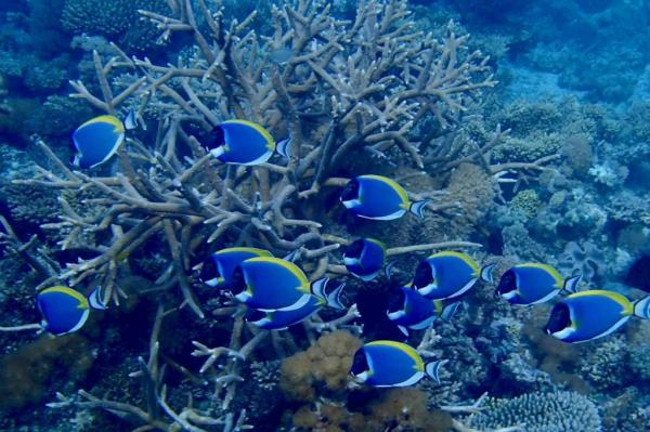Found shelter for corals threatened by global warming
Researchers have found and are seeking more safe refugees for marine organisms that are vulnerable to climate change.
Accordingly, scientists from the Wildlife Conservation Association have discovered a shelter for coral species threatened by climate change and rising ocean temperatures.
Conservationists argue that reefs are located off the northern coast of Mozambique and one of the Quirimbas islands provides two shelters for vulnerable corals, but they also warn of the risk of harm from Overfishing in these areas.

The first shelter was securely isolated from temperature changes, which changed very slowly from cool to warm temperatures, and no dangerous extreme temperatures appeared, allowing a wide range of easily released coral species. growing and adapting.
The second shelter was found to have cooler, deeper water, full of light conditions, allowing coral, resident, protected and ecologically rich species to grow.
Researchers are now looking for additional underwater refugees for vulnerable organisms that can adapt to rapidly changing conditions.
Researchers say that newly discovered Indian Ocean shelters must be better protected from overfishing if they are to be a safe shelter.
" The Mozambique northern islands Quirimbas has many types of refugia, environmental changes and high ecological diversity that allow these coral reefs to adapt to rapid climate change," Tim McClanahan, home High-class conservation zoology of WCS said. "If this area is a potential source of adaptation to climate change, fishing here must be at a sustainable level, balancing and maintaining the reef fish biomass is a top priority. . "
Like many marine protected areas, the Quirimbas National Park area is not clearly defined. Wildlife managers lack staff and resources, they need to enforce rules against fishing and other unfavorable activities for the reserve.
By identifying important marine resources such as coral sanctuaries, the WCS hopes to inspire governments and international organizations to strengthen marine ecosystem conservation resources.
This study has just been published in the journal Ecology.
You should read it
- ★ The 'dead zone' on the ocean threatens the life and ecosystem of many seas
- ★ Acid in the Arctic Ocean increases rapidly with climate change
- ★ Concrete bubbles promise to help restore coral reefs faster
- ★ Three new species of crustaceans are found in coral reefs throughout the Indian Ocean and Pacific Ocean
- ★ The ocean is losing 'breath'